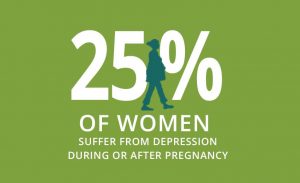Turning 30 has made me think a lot about pregnancy and babies. I have always assumed that I’d have a baby ‘one day.’ That it was something I was ‘meant’ to do, wanted to do, intended to do. So I’m publishing this series about motherhood and mental health.
— As with Part One, there’s some trigger warnings for this piece. The stories shared with me are very honest, are across the spectrum of mental illness, and some include references to trauma and abuse. Please be aware of this and put your own self care first. —
It has become increasingly clear to me that my physical and mental health are probably going to stop me from being pregnant and caring for a baby. That is absolutely not a judgement call on anyone else’s choice. It’s just my feelings right now, and an acceptance of my physical reality. Those feelings include a lot of sadness, because I deeply wanted to experience pregnancy. Luckily, I have a child in my life who gives me great joy. While not the same as biological parenthood, this means so much to me.
I have several friends who are currently pregnant, or mothers to babies or young children. Some of them have talked to me about the realities of their pregnancies and the early days of motherhood. A lot of the things they said were completely new to me. They expressed frustration that the possible difficulties and complications involved in getting pregnant, being pregnant, giving birth, and being a mother are not shared more often. One said that she hated how TV sugarcoats and romanticises pregnancy and giving birth, because nothing had been like that for her, and it made her experience so much harder. She felt very alone.
“I wish there had been something, someone, there for me, to tell me how things could be in reality. I had toxemia and was put on bed  rest, and no one even explained to me what the matter was, or how dangerous things were. I hated being pregnant and I wondered what was wrong with me. When I gave birth after being induced, it was very quick, I didn’t get any endorphin high or anything, and I didn’t feel the expected immediate rush of love or connection with my baby. I was devastated. I just wish I’d known everything I felt was normal.”
rest, and no one even explained to me what the matter was, or how dangerous things were. I hated being pregnant and I wondered what was wrong with me. When I gave birth after being induced, it was very quick, I didn’t get any endorphin high or anything, and I didn’t feel the expected immediate rush of love or connection with my baby. I was devastated. I just wish I’d known everything I felt was normal.”
Hearing this was what lead me to offering writehanded as a space for women who wanted to tell their story.
This is Part Two.
- I had a clearer understanding of my family history of depression at the time
- Facebook and Twitter had been invented so more of us ‘abnormal’ unmotherly mothers could have reached out to each other (I see good things in social media now)
- The books, brochures, etc etc featured more information about mental health during pregnancy
- Instead of “oh my god how exciting!!!”- “Wow, that’s a big thing to happen to you – how are you feeling about it?” would be better
- Instead of “how is the pregnancy going?” – “do you feel like talking about your pregnancy, or shall we move on?”, or just “How is work?” is good
- Instead of “have you got everything ready?”, “you should do whatever the f*ck you want” is a much better comment.
RESOURCES
Blogs by mothers
Thalia at Sacraparental has written so much about this, including a series about her postnatal depression: How It Is. I also thought her series about making parenting easier was fantastic, especially this one about ‘living in the gap’ between your expectation of parenthood, and the reality.
EmilyWrites. Emily is a mother to two young sons and has been writing about parenting for ages. She is also a columnist and has a book coming out in March.
Leilani Tamu writes about her pregnancies and the difficulties she had breastfeeding.
Australian Leonie Dawson writes about her postnatal depression, and has produced a great zine about hyperemesis gravidarum.
Resources, support, getting help
Mothers Matter, a huge website that includes stories from mothers. This has such a wealth of information, including things like what sort of medications you can take during pregnancy and after birth, lists of support services, facts and myths – it goes on.
Mothers Matter has a list of support services around the country. It doesn’t include private professionals, but it may help narrow down what you need and what’s available to you.
Perinatal Anxiety and Depression Aotearoa
Help Auckland – offer on the phone and in person support to survivors of sexual assault and can help with accessing further services.
Media
Here is Radio NZ’s series on perinatal depression.
If you have more information or links you’d like to add, please let me know. I am happy to add them in.
